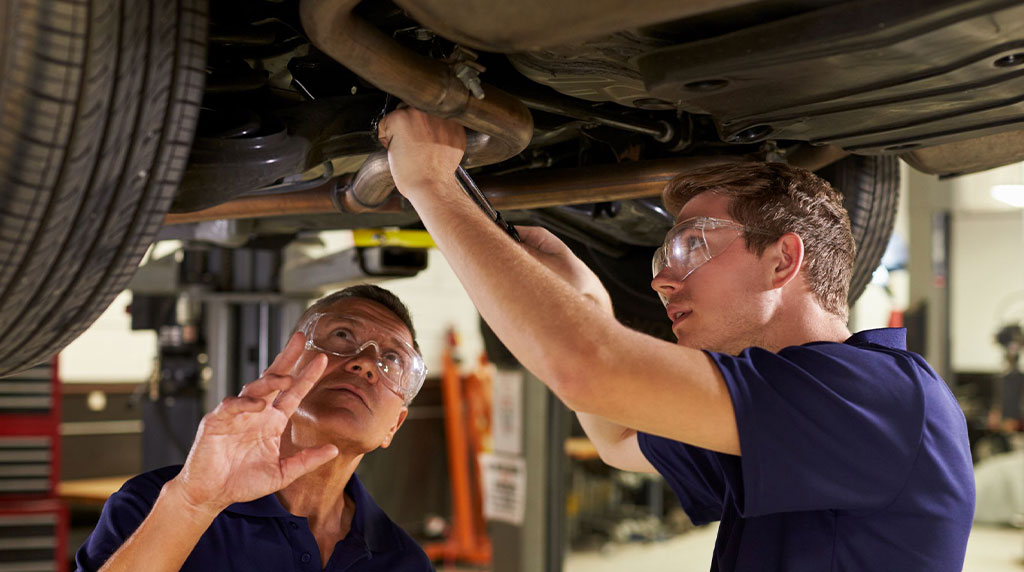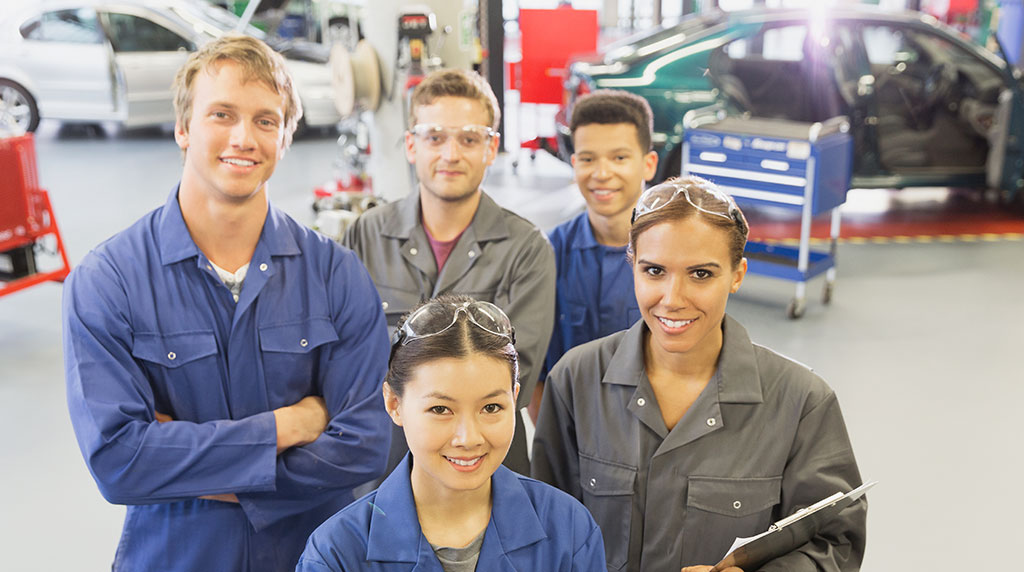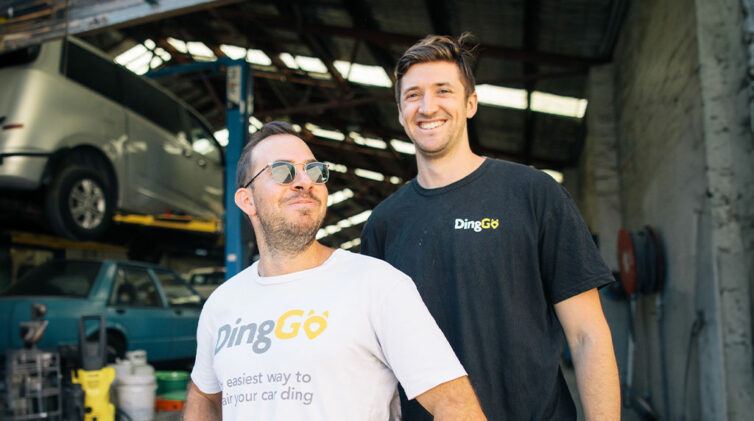THE Motor Trades Association of Australia (MTAA) and the Australian Automotive Dealer Association (AADA) have welcomed changes made to the New Energy Apprenticeship Program just announced by the Australian Government.
The key changes include:
- Changes to the $10,000 green apprentice scheme to attract more auto apprentices to be EV ready.
- Program assists industry to prepare for over 2 million EVs due on Australian roads by 2030.
- Announcement complements $60m committed to help the auto retail industry with charging infrastructure.
The industry bodies said that the expansion of the program will encourage more apprentices to consider the dynamic automotive sector as their preferred career choice and enter a profession at the forefront of Australia’s shift to clean energy; servicing and supporting the country’s growing electric vehicle fleet.
AADA CEO James Voortman said in a statement: “This $10,000 in support will help encourage prospective apprentices to look to the automotive sector as an industry with long-term employment prospects supporting Australia’s net zero ambitions.
“This is a critical time for the sector, with new technology coming to market it is important that Australia has a well-trained workforce to service, repair and maintain electric vehicles,” he said.
“The changes to this scheme which remove a requirement that an apprentice’s work be solely dedicated to clean energy, is a welcome recognition that along with servicing and repairing new technologies such as EVs and hybrids, automotive technicians will continue to provide services for traditional ICE vehicles well into the future,” Mr Voortman said.
The MTAA added: “The revised initiative appropriately requires apprentices to have EV exposure during their apprenticeship.
“This is a sensible move by the government in supporting the automotive workforce to prepare for the biggest transformation to take place in the sector – the shift away from fossil fuels towards electric powertrains.
“The change also comes at a point where the industry is readying itself for the impending New Vehicle Efficiency Standard (NVES), which will see Australia implement a light vehicle fuel efficiency standard for the first time, beginning in 2025.
“The NVES is expected to broaden the range of zero and low emission vehicles available in Australia, resulting in a changing mix of vehicles that automotive businesses will service and repair.
“MTAA has previously called for a wide-ranging package of support for automotive businesses and their workforces to transition to an increasingly electrified future, which has implications for training, tooling and facilities as well as the need for charging infrastructure.
“Compounding the impacts of the changing technologies supported by automotive businesses is the sector’s growing skill shortage, particularly for technicians with EV expertise, making changes to the incentive scheme even more important.
“While automotive electricians and technicians are eligible for the incentive, MTAA calls on the government to include motorcycle technicians, and panel beaters who are already significantly immersed in supporting electric vehicles.
MTAA CEO, Matt Hobbs said: “Securing Government support for our members and their workforces has been a top priority of the MTAA this year. We are pleased the government is listening but note there is more to be done.
“We look forward to continuing the discussion with the government on the important role the automotive industry can play in the transition of the economy to a low emission future.
He said the MTAA and its state and territory bodies are now focused on working with their 15,000 members to understand the changes to the New Energy Apprenticeship Program and assist businesses and apprentices to access this essential support.
Ahead of the announcement the MTAA lodged the MTAA submission to the Australian government’s Strategic Review of the Australian Apprenticeship Incentive System.
The submission raised the alarm on changes to apprentice incentives and calls for greater support.
In it, the MTAA said the automotive industry more than ever required a strong pipeline of apprentices.
“With the sector facing a deficit of over 38,000 automotive technicians and apprenticeship commencements not meeting current or future industry demand, any changes to apprentice incentives must not be made in haste,” it said.
“The existing program has been highly successful in driving apprentices and trainees into the automotive industry and encouraging businesses to invest and employ more apprentices.
“The Australian government and industry must work together on a new apprenticeship incentive scheme.”
The submission said that changing or removing the existing scheme will de-incentivise small businesses to invest and employ more apprentices.
“This is particularly important in a time of disruption to the sector that supports the growing number of electric vehicles on the roads which require specialised skills,” the MTAA said.
“Primarily, MTAA advocates for an incentive system that provides assurance and stability to businesses and encourages them to re-engage in the apprenticeship and traineeship system.
“Over 95 per cent of the Australian automotive industry is small and family-owned businesses with these businesses employing the majority of apprentices.
“Investing in apprenticeships is both time consuming and costly making the current incentive scheme critical as the incentives help offset additional costs.”
MTAA CEO, Matt Hobbs said of the submission: “Our members want to attract, invest in, and foster new talent, and ultimately prepare their business for the biggest transformation facing their sector – the advent of EVs – yet these changes are creating uncertainty when the industry needs to focus on innovation.
“Just like it did with the New Vehicle Efficiency Standard (NVES), we ask the government to work with us on finding the best outcome for the sector and arrive at a solution that motivates businesses to employ more, not less, apprentices.”
The MTAA said its membership had a proud history in supporting and developing apprenticeship and traineeship programs over many years.
This includes 1000’s of automotive small businesses which employ apprentices across Australia, creating a pipeline of talent to meet the future needs of the Australian automotive industry.
Meanwhile the FCAI Chief Executive Tony Weber said the chamber supports the government’s commitment to fostering skill development and supports increased funding towards recharging infrastructure.
“These steps are crucial for supporting the integration of electric vehicles into the Australian market and will drive consumer confidence and other target areas needed to support a strong and reliable transport sector,” he said.
“We look forward to continuing our collaboration with the Government to ensure that the automotive industry remains a robust contributor to Australia’s economy, lifestyle, and environmental objectives.
“This expanded apprenticeship program not only addresses the immediate skills shortages but also lays the groundwork for a resilient, future-proof workforce.”
By John Mellor and Neil Dowling















 Read More: Related articles
Read More: Related articles

